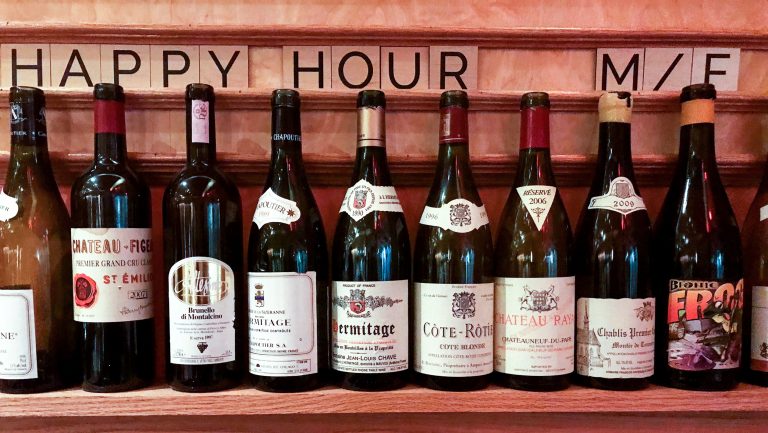From importing to distribution, sales reps in the beverage alcohol business are often compensated with a commission-based salary. The practice is meant to be a mutually beneficial arrangement: Sell more for the company, and take home more in your paycheck. But the fluid nature of commission-based incomes can create a lot of challenges for employees, especially those who are used to wage-based salaries. SevenFifty Daily reached out to three people with firsthand experience to learn more about what professionals in the drinks industry need to know before taking a commission-based job.
Steve Treder
Senior vice president, Western Management Group, Los Gatos, California

As the senior vice president at Western Management Group, Steve Treder has come to know the ins and outs of the wine sales business because of the compensation surveys his company performs jointly with Wine Business.com. Based on his experience in analyzing these surveys, he’s observed that the industry has made use of many different ways to pay based on commission.

Don’t miss the latest drinks industry news and insights. Sign up for our award-winning newsletters and get insider intel, resources, and trends delivered to your inbox every week.
Treder says that prospective employees should go into their interviews knowing the differences between commissions that are purely a percentage of gross revenue, and those that are triggered by reaching a quota or sales target.
He also says that many sales reps who are compensated with a commission work on a ratio plan, in which a portion of their pay is a flat wage, with the rest based on a percentage of sales. Those with a higher portion of salary generated from commission are “more leveraged,” including some who are entirely compensated from commission. From his surveys of the industry, Treder has seen a correlation between higher leverage and more burnout, but he adds that candidates with the right personality “type” can thrive.
“In sales, we have some jargon where we talk about hunters and farmers,” he says, adding that hunters thrive in high-risk, high-reward scenarios such as winning new business or breaking into new markets. Farmers, on the other hand, excel at managing customer relationships, particularly those that are long-standing. “Farmers do not do as well on a highly leveraged plan,” he says. “They are more comfortable on a 90/10 or 80/20 plan, where they are managing the business and sustaining long-term buying patterns.”
Knowing where your personality fits in such a scheme—and the details of your sales expectations—are vital to assessing whether a prospective job will be a good fit. “Understand what you are getting into,” Treder advises. “It’s not for everybody.”
Dawn Gaudini
Regional manager, Dalla Terra Winery Direct, Denver

With more than 35 years of experience in the beverage alcohol business, Dawn Gaudini has seen commission structures and compensation tactics come and go. While she currently has a wage-based salary as the regional manager for Dalla Terra Winery Direct in Denver, she has previously lived on a commission-based salary, and she currently mentors several drinks industry professionals who do.
When discussing the prospect of a commission-based salary in a job interview, Gaudini says, the main question should be, “What is my exact territory and what has it billed in the past?” By asking this in an interview—and asking about the commission rate—a candidate can get a pretty good sense of their prospective income, especially if they’re walking into an established book. “If the territory has billed a million dollars,” Gaudini says, “then they can just multiply that times the commission rate and have an idea of what the territory will pay. Obviously their job is to grow it from there, but that’s the starting point.”
But a commission-based job isn’t entirely about salary. Gaudini recommends that candidates also ask about additional incentives that might be offered, either in the form of financial payouts for performance or, perhaps more crucially, educational trips, which can help accelerate a career and add to one’s knowledge base.
Finally, she observes that the most successful sales reps in the beverage alcohol business are not the same aggressive personality types who succeed in, for instance, car sales. To borrow Treder’s analogy, the ideal candidate is a bit of a hunter and a farmer.
“You have to see yourself as a consultant, an educator, and a marketer,” Gaudini says. “And the accounts want to see you that way, too. You’re trying to figure out what each account needs and wants, how to develop a relationship, and so forth.” She notes that if all of these things happen and you keep your focus, you’ll make a good living on a commision-based salary.
Cat Nguyen
Sales representative, Republic National Distributing, headquartered in Grand Prairie, Texas

“You can’t just go paycheck to paycheck,” says Cat Nguyen, a sales representative for Republic National Distributing who is based in Houston. “If I have a good month, it’s thanks to me, but you can also have a bad month that’s beyond your control. I mean, we just had a really big storm [Hurricane Harvey] a little more than a year ago, and that was rough.”
For Nguyen, a commision-based salary was a hard-earned benefit. After 10 years as a sommelier, she transitioned to a sales representative position with Republic National Distributing, for which she focuses on smaller sommelier accounts. Since her initial territory and the revenue it generated were small, she was put on salary for two years while she expanded both the accounts and the territory. With success came a shift to a salary based 100 percent on commission.
“At first, the struggle is real,” she says, “but at the end of the day, if you’re hungry for it, if you learn to organize your business and run your own show, you’ll be really good.” Nguyen was grateful for the opportunity to be on salary while she learned the workings of distributing, as well as self-discipline as a salesperson. “One of the best pieces of advice I got when I first started out,” she says, “was from a colleague who said, ‘Cat, you’ve been so used to being good at your job, you’ve forgotten how to fail.’”
In Nguyen’s case, failing had less to do with rejection and more to do with not maximizing her time. She notes that figuring out how best to devote her resources to the right accounts was a crucial step in growing her territory and, eventually, her take-home pay. By the time she switched over to a commission-based salary, her success made the new compensation structure preferable. “If you can figure out how to be available [to your accounts],” she says, “if you can look at their wine list as a whole and see what they’re lacking—varieties, price points, brands—switching to a commission is really not a big deal.”
Ultimately, Nguyen says that shifting to a commission-based salary is completely worth it for the freedom it affords. “If I end up working until 9 pm or doing extra events and it ends up growing my business,” she says, “I see a direct benefit from it. When I was on salary, there wasn’t that immediate gratification.”

Dispatch
Sign up for our award-winning newsletter
Don’t miss the latest drinks industry news and insights—delivered to your inbox every week.
Kevin Day is a wine writer and photographer based in Colorado and the founder of the wine website Opening a Bottle. He is an Italian Wine Scholar with Highest Honors and a member of the International Association of Culinary Professionals. Follow him on Instagram and Twitter @openingabottle.







